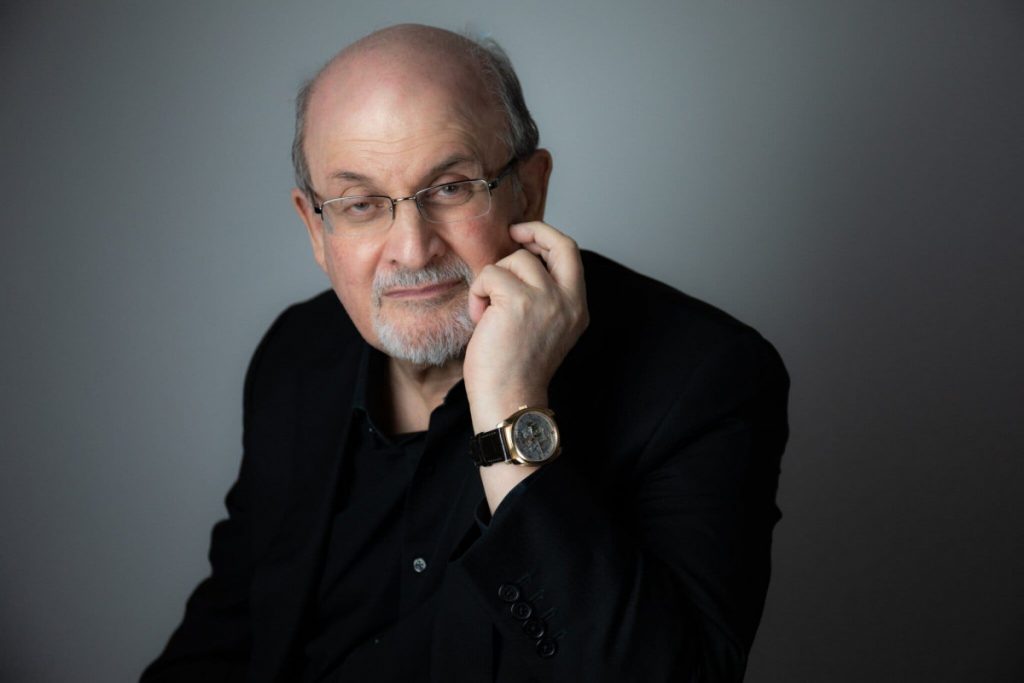Book bans in America are reaching new highs, according to an April PEN report that shows an increase of over 1,500 banned books between July 2021 and March 2022. This censorship permeates deeper than books themselves, and in some cases, affects the lives behind the books: the authors.

In 1988, Salman Rushdie published a novel, The Satanic Verses, that was inspired by the life of the prophet Muhammad, and whose title refers to a series of Quranic verses.
The novel sparked outrage among Muslims, as some felt that references in the novel were blasphemous; Rushdie was accused of misusing free speech and threats of Iranian government-sanctioned violence were placed on Rushdie’s life, as well as on the lives of contributors to the novel. The U.K. government stepped in and placed Rushdie under police protection.
Rushdie, a celebrated author with a total of 14 novels and several other books in his repertoire, and who has won an array of literary prizes including the 1981 Man Booker Prize, and the 1993 “Booker of Bookers” for his novel, Midnight’s Children, will speak at 10:45 a.m. today on the Amphitheater stage, alongside advocate Henry Reese, about the importance of providing writers with places of asylum, closing the Week Seven Chautauqua Lecture Series Home of “More than Shelter” Redefining the America Home.” Rushdie previously spoke on the Amp stage in 2010, in a special evening Chautauqua Literary and Scientific Circle presentation on his book The Enchantress of Florence.
“Sadly, the level of persecutions is not dropping, but rising,” Rushdie said, “… and safe places are required.”
While in hiding, Rushdie collaborated with other writers to create the International Parliament of Authors. They advocated for European cities to establish places of refuge for writers, eventually establishing the Cities of Asylum network, wherein writers could find safety and freedom in creative expression.
Reese, an academic and avid reader, first heard Rushdie speak about the Cities of Asylum network in Pittsburgh in 1997, just as Rushdie was reentering the public eye. He was captivated by Rushdie’s work with Cities of Asylum, and immediately contacted the network about his desire to found a Pittsburgh chapter. When he didn’t get a response, he spent the next six years consistently emailing them until 2003 when work began to expand the Cities of Asylum network.

Now, Rushdie and Reese, president of the Pittsburgh chapter of City of Asylum, take the Amp stage as “two friends who know each other well,” and who approach the work of protecting artists from different perspectives, said Matt Ewalt, vice president and Emily and Richard Smucker Chair for Education.
“Reese, who is leader of City of Asylum, can engage Salman Rushdie in both the history of how the organization came to be, and an examination of Rushdie’s own experiences as a writer who has already been threatened,” Ewalt said.
Rushdie and Reese will emphasize the significance of refuge for persecuted writers in modernity.
“I’d hope to talk about the importance of the literary arts in an age dominated by the false narratives of the powerful,” Rushdie said.
Rushdie’s inaugural work in establishing Cities of Asylum, alongside “inspiring Henry Reese and others to create an American version,” are two aspects of his career that he said he is most proud of.
“Both (Reese and Rushdie) have provided critical leadership in creating the City of Asylum infrastructure and mission tying to more broad international obligations for protecting artists and writers in exile,” Ewalt said.
As Rushdie and Reese depart the Amp stage, Rushdie wants Chautauquans to have a part of his story.
“I’ve written 20 books, and there’s a 21st coming in February,” he said. “That shelf of books is my legacy, and I’d hope that Chautauquans might want one or two of those books on their own bookshelves.”
Editor’s note: Due to events in the Amphitheater on Friday, August 12, this lecture did not take place as scheduled.




